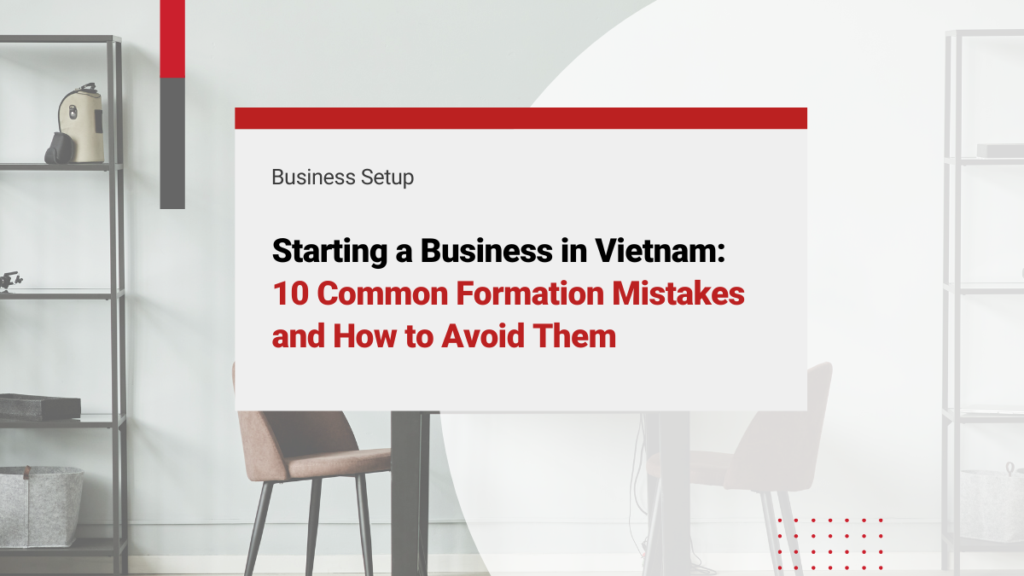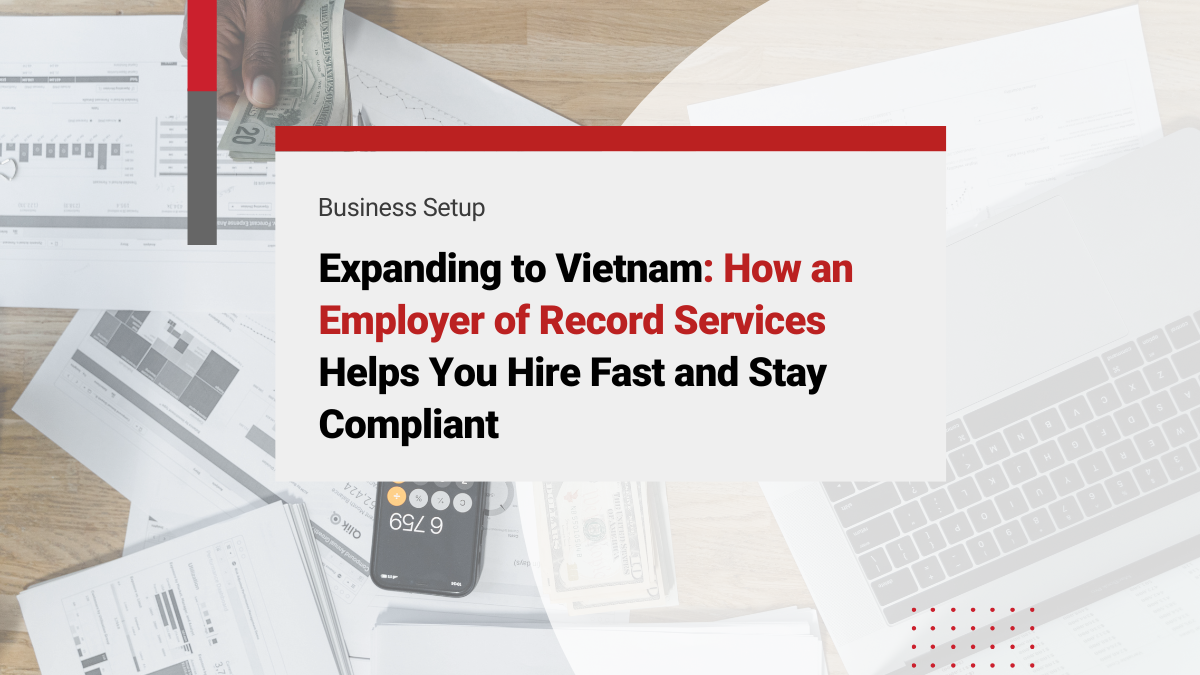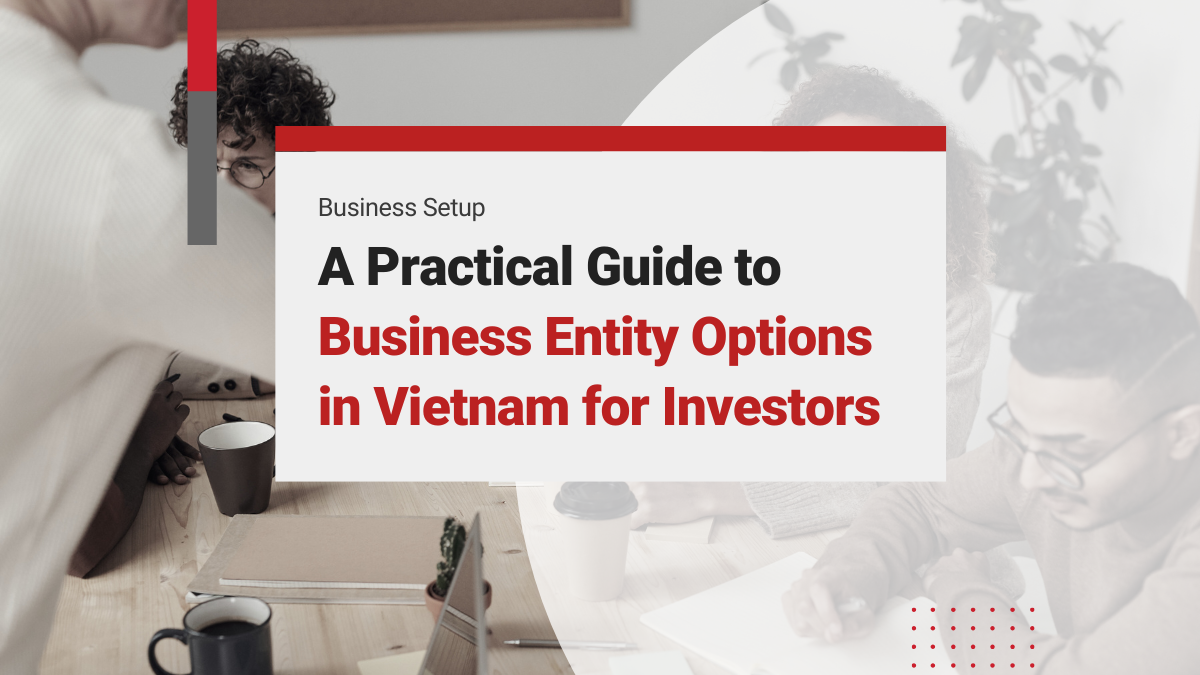Vietnam’s thriving market has become a magnet for foreign investors eager to expand in Southeast Asia. However, starting a business in Vietnam means navigating a unique legal and regulatory landscape. Seemingly simple missteps – choosing the wrong business structure, missing compliance deadlines, or mismanaging capital – can lead to costly delays or even jeopardize your investment. Below we highlight the top 10 most common company formation mistakes in Vietnam and how to avoid them, so you can set up your business smoothly and successfully.
1. Assuming You Always Need a Local Partner in Vietnam
A frequent misunderstanding when starting a business in Vietnam is thinking you must have a local partner. In fact, most industries allow 100% foreign ownership, letting you maintain full control. A local partner is only needed in restricted sectors like tourism or advertising. Bringing one in unnecessarily can complicate decisions and profit sharing.
How to avoid it: Before starting a business in Vietnam, check ownership limits for your sector. If full foreign ownership is permitted, register a wholly foreign-owned enterprise. Only add a Vietnamese partner when legally required or strategically valuable—consult local experts to confirm your best option.
2. Using a Local Nominee Company to Bypass Ownership Rules
Many foreign investors try to avoid restrictions by registering a company under a local nominee’s name, intending to transfer ownership later. This shortcut is risky and non-compliant when starting a business in Vietnam. Such transfers often trigger unexpected legal or tax issues, and in restricted sectors, authorities may refuse to approve them altogether—leaving you with a company you can’t legally own or control.
How to avoid it: When starting a business in Vietnam, always register under a structure that’s fully compliant from the start. If 100% foreign ownership is permitted, apply for your Investment Registration Certificate (IRC) and Enterprise Registration Certificate (ERC) directly under your name. Where a local partner is required, form a legitimate joint venture instead of using informal nominee arrangements. This ensures your ownership is legally recognized and protects you from future disputes or penalties.
Need help with a Enterprise Registration Certificate (ERC) in Vietnam? Check out InCorp Vietnam’s Company Formation Services now!
3. Appointing a Friend as a Nominee Shareholder
Another common pitfall when starting a business in Vietnam is appointing a Vietnamese friend or acquaintance as a nominee shareholder. While this may seem like a convenient shortcut to meet ownership rules, it creates major legal and financial risks. Since the nominee is the legal owner of the shares, disputes over control, profit sharing, or even full ownership can easily arise. Worse, Vietnamese law does not officially recognize private nominee agreements, meaning you have little legal protection if the nominee refuses to transfer the shares or faces personal issues (such as debt or legal trouble). In the worst-case scenario, you could lose your entire company.
How to avoid it: Avoid informal nominee arrangements when starting a business in Vietnam. If foreign ownership restrictions apply, protect your investment through legitimate, legally recognized structures. You can form a clear joint venture agreement, or use regulated trustee or professional shareholding services to hold equity securely. Always have formal legal documentation in place — never rely on verbal trust or personal relationships when your business ownership is at stake.
4. Believing Foreign Companies Are Exempt from Local Laws
Some first-time investors mistakenly think that having a foreign-owned company means Vietnamese laws won’t apply fully. In reality, all companies in Vietnam must abide by the same local regulations, whether 100% foreign-owned or local. This includes complying with tax filings, accounting standards, labor laws, social insurance, licensing requirements, and other regulations. No matter your ownership structure, you are subject to Vietnamese law and oversight. If you fail to follow local rules—say you skip mandatory tax reports or ignore labor regulations—your company can face serious penalties, fines, or even be forced to shut down.
How to avoid it: Educate yourself on the legal obligations of doing business in Vietnam, or hire local legal and accounting advisors to keep you compliant. Ensure you obtain all required licenses and permits, register for taxes, and follow employment laws from day one. Build compliance into your business plan rather than treating it as an afterthought. By respecting Vietnam’s regulatory framework (just as you would in any country), you’ll avoid legal troubles and build a stable foundation for your business.
5. Setting Up with Insufficient Charter Capital
A frequent issue when starting a business in Vietnam is underestimating how much charter capital is needed. While Vietnam doesn’t set a fixed minimum across all industries, authorities expect your declared capital to reasonably cover the first stages of operation. If you register an unrealistically low amount and can’t prove available funds, your application may be rejected for lacking financial credibility. Even if approved, being under-capitalized can delay operations — from paying rent and licenses to hiring staff — and may raise red flags during audits.
How to avoid it: Before starting a business in Vietnam, research the typical capital norms for your sector. Although small amounts are technically allowed, around US$10,000 or more is generally seen as the practical minimum to demonstrate viability. Allocate enough to cover setup costs for 6–12 months and maintain smooth cash flow. Consult with professional advisors or service providers to determine the optimal capital level for your business scope and ensure your registration proceeds without obstacles.
Find out more about Industry Capital & Deposit Requirements in Vietnam!
6. Missing the 90-Day Capital Contribution Deadline
When starting a business in Vietnam, you must contribute your registered charter capital within 90 days from the date your Enterprise Registration Certificate (ERC) is issued. Many new investors overlook this rule, thinking it’s flexible, but delays can lead to serious penalties. If you fail to contribute on time, you’re legally required to amend your charter capital to the actual amount contributed — or even face company dissolution. Late capital contributions can result in fines of up to VND 50 million (≈ USD 2,000), and repeated noncompliance could lead to license revocation.
How to avoid it: Treat the 90-day timeline as non-negotiable when starting a business in Vietnam. Prepare your funds early, open the required capital bank account, and transfer the full amount as soon as possible after registration. Keep proper documentation of the transaction for audit purposes. If unavoidable delays arise, apply for an official extension or amend your investment registration before the deadline passes. Staying proactive ensures compliance, avoids fines, and maintains your company’s credibility with Vietnamese authorities.
7. Neglecting to Request and Keep VAT Invoices
A frequent oversight when starting a business in Vietnam is failing to properly collect and store Value Added Tax (VAT) invoices. Many new foreign entrepreneurs assume that standard receipts are sufficient, but without valid VAT invoices, you lose eligibility for tax deductions and VAT refunds. In Vietnam, sellers often issue VAT invoices only upon request — meaning you could miss out if you forget to ask. Poor invoice management also leads to compliance risks, as tax authorities require all transactions to be backed by proper VAT documentation during audits.
How to avoid it: From the moment you begin starting a business in Vietnam, ensure every business expense — from rent and utilities to supplier payments — comes with a VAT invoice. Always issue VAT invoices to your clients as well (electronic invoices are now mandatory). Set up an organized filing system, whether digital or physical, to store all incoming and outgoing invoices. Train your staff on Vietnam’s invoicing requirements so nothing slips through the cracks. Proper VAT management safeguards your tax credits, ensures compliance, and prevents costly disputes during audits.
8. Delaying Business Registration and Compliance Filings
A frequent yet costly mistake when starting a business in Vietnam is procrastinating on company registration or post-setup filings. Vietnam’s registration process involves multiple approvals — from the Investment Registration Certificate (IRC) to specialized licenses — and these can take weeks or even months depending on the industry. Waiting too long to begin can delay your market entry, while rushing at the last minute risks errors, missing documents, or noncompliance. For example, foreign investors often underestimate the time needed for document legalization and translation, leading to unnecessary expenses or rejection of applications.
How to avoid it: Begin your documentation and registration process early once you’ve decided to invest. Gather notarized and translated documents in advance, and consult with a corporate service provider to understand realistic timelines for each stage. After incorporation, promptly complete follow-up tasks such as opening a capital bank account, tax registration, and social insurance enrollment. When starting a business in Vietnam, planning ahead ensures smoother approvals, avoids costly penalties, and allows your operations to launch without unnecessary delays.
Read Related: Everything You Need To Know About Company Incorporation in Vietnam
9. Choosing the Wrong Business Structure for Your Needs
A common misstep when starting a business in Vietnam is defaulting to a company type—usually a limited liability company (LLC)—without evaluating whether it fits your goals. Vietnam offers several entity types, each with its own advantages, restrictions, and compliance obligations. For instance, a 100% foreign-owned LLC provides simplicity and control but limits share transfers and fundraising flexibility. In contrast, a Joint Stock Company (JSC) is better for investors seeking to raise capital or eventually go public. If you only need a small, non-commercial presence, a Representative Office (RO) might be sufficient—but it cannot engage in profit-making activities. Selecting the wrong structure can restrict your business scope, add compliance costs, or require time-consuming restructuring later.
How to avoid it: When starting a business in Vietnam, take time to compare all entity options — LLC, JSC, Representative Office, or Branch — and match them with your long-term strategy. Consider factors such as ownership flexibility, tax exposure, required governance, and licensing needs. If uncertain, consult a corporate advisory firm that can evaluate your sector and recommend the best-fit structure. Choosing the right entity from the start saves you from future limitations and unnecessary administrative burdens.
10. Overlooking Required Business Licenses and Permits
A major mistake when starting a business in Vietnam is assuming that obtaining your Enterprise Registration Certificate (ERC) and Investment Registration Certificate (IRC) is enough to begin operations. In reality, many sectors require additional licenses, permits, or certifications before you can legally trade. For instance, restaurants and cafés need Food Safety Certificates, while retail or trading businesses with foreign investment must secure a retail trading license. Highly regulated industries such as education, healthcare, logistics, fintech, and e-commerce require further approvals from their respective ministries. Failing to obtain these can lead to fines, business suspension, or denial of operating rights, leaving your company “registered on paper” but unable to function.
How to avoid it: When starting a business in Vietnam, identify all industry-specific licenses during your planning phase. Research the regulatory requirements for your field — whether from the Ministry of Health, Education, Industry and Trade, or other authorities — and prepare your applications early. Work with a local legal advisor or service firm familiar with Vietnam’s licensing landscape to ensure you secure all necessary certifications (fire safety, environmental permits, or professional qualifications). Only begin operations once every license is approved. Being fully licensed from day one prevents compliance issues and ensures your business can operate smoothly and legally.
Investing in Vietnam? Find out InCorp Vietnam’s Company Formation Services
How InCorp Vietnam Can Help You Start a Business in Vietnam
Setting up a company abroad can be complex — but InCorp Vietnam simplifies every step of starting a business in Vietnam.
- Advisory on Ownership & Structure: We help determine if 100% foreign ownership is allowed and advise on the most suitable structure (LLC, JSC, or Representative Office) to fit your goals.
- Seamless Company Registration: Our experts prepare all documents, secure your Investment Registration Certificate (IRC) and Enterprise Registration Certificate (ERC), and ensure your setup is compliant and efficient.
- Compliance & Financial Setup: From opening bank accounts to registering for VAT, corporate tax, and social insurance, we help you meet every requirement and stay compliant.
- Licensing & Permits: For sectors like F&B, retail, or education, we obtain the required licenses so you can operate legally from day one.
- Ongoing Support: Beyond incorporation, we handle accounting, payroll, and compliance filings—keeping your business aligned with Vietnam’s evolving regulations.
InCorp Vietnam ensures starting a business in Vietnam is smooth, compliant, and worry-free—so you can focus on building success in one of Asia’s fastest-growing markets.
Learn the Right Setup for Business
Expansion in the Vietnam
Frequently Asked Questions
Can foreigners own 100% of a company in Vietnam?
- Yes. Most industries allow 100% foreign ownership. A local partner is only required in restricted sectors.
What is the minimum charter capital in Vietnam?
- There is no fixed minimum, but around USD 10,000+ is commonly used to show financial viability.
How long does company registration take in Vietnam?
- Typically 4–8 weeks, depending on the industry and licensing requirements.
What if charter capital is not contributed within 90 days?
- You may face fines, capital reduction, or license risks if the 90-day deadline is missed.






